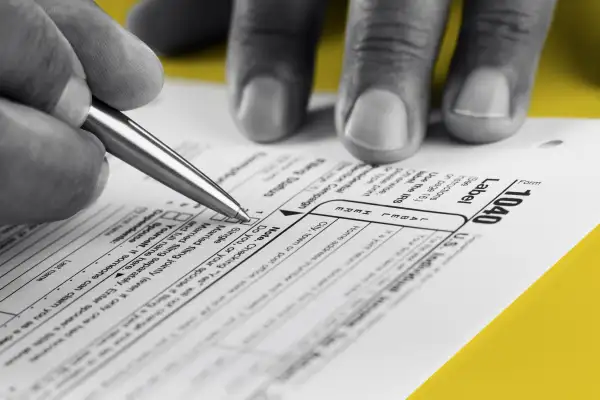Can't Make the Tax Deadline? Here's How to File for an Extension or Set up a Payment Plan With the IRS

Tax Day is almost here — the clock is ticking ever closer to the April 15 federal filing deadline. But if you need more time, don't fret.
First of all, you're not alone. Scores of taxpayers request more time to file every year — more than 19 million people requested an extension on their 2022 tax returns, according to data from the IRS.
This year, if you receive an extension, the deadline to file will be pushed back to Oct. 15. But there's an important caveat: Getting an extra six months to file your tax return doesn't grant you an extension to pay your taxes. If you owe the IRS money and don’t pay the full amount by April 15 (in most states), penalties and interest will begin to accrue on April 16.
If you can’t pay the amount you owe at once, the worst thing you can do is ignore it, Wendy Barlin, a certified public accountant and owner of About Profit, told Money in 2021.
“You don’t want to ignore the IRS,” she adds.
Luckily, you have options. Here’s what you need to know about getting more time to file or pay your taxes.
How to file for an extension in 2024
If you need more time to file your taxes, make sure to ask for it. You can file Form 4868 through your accountant, tax software like TurboTax or via the IRS website. You can also request an extension when you make a payment to the IRS.
Don't avoid filing your return because you know you owe money that you can't afford to pay. You should still file a return or file for an extension by April 15 so you don’t face what the IRS calls a failure-to-file penalty, which is 5% of the unpaid taxes for each month or part of a month that a return is late, up to 25% of your unpaid taxes. (You may also face a failure-to-pay penalty.)
Meeting the April 15 deadline may be tight, but if you have the documents you need and can do an honest filing now, Barlin recommends doing so.
“There is no value in extending if nothing is going to change for you between now and October when the final deadline arrives,” she adds.
The IRS has several options to help you file and prepare your taxes for free online, including the new IRS Direct File being piloted in 12 states this year. The IRS has also greatly expanded its Free File eligibility this year, so if you didn't qualify last year, make sure that hasn't changed this year. Regardless of income level, everybody can use IRS Free File to request a free tax extension.
Also keep in mind that the deadline to file your state taxes may be different from the deadline to file your federal taxes. Make sure to check out Money’s breakdown of the state filing deadlines.
How to get more time to pay your tax bill
Again, filing for an extension doesn’t mean you have until October to pay any taxes you owe. But if you can’t pay your full tax bill by April 15, you have options.
You can set up an online payment plan with the IRS to pay off your outstanding balance over time with penalties and interest. Depending on your eligibility, you can set up a a short-term payment plan in which you pay back your balance in 180 days or less, or a long-term payment plan in which you pay monthly.
While a short-term payment plan doesn’t have any setup fees, a long-term payment plan has a $31 online setup fee if you pay through automatic withdrawals and a $130 setup fee if your payments are not automated (both those fees are higher if you set up your account via phone, mail or in-person). Low-income taxpayers can have the fee reduced, reimbursed or waived.
Cari Weston, a certified public accountant, told Money in 2021 that she recommends automating the payments because — not only do you not face the extra fee — but you also don’t want to risk missing a payment. She says her clients have forgotten to make the payment or have had checks lost in the mail, and the IRS has kicked them into collection activity, which can include seizing wages or property.
“You really don’t want to promise the IRS something and then not follow through,” Weston adds.
So she recommends not overextending yourself when setting up your payment plan. If you think it will take you four years to pay, give yourself five. If you pay rent on the first day of every month and have a lean wallet until half way through the month, make your monthly payments on the 20th. If you think you can pay $200 a month, commit to $100 for automatic withdrawals — you can always make extra payments, she says.
If you don’t know how much you can commit to or you’re facing an undue hardship, you can also call the IRS and ask them to put a collection hold on your account. The agency will ordinarily give you at least four to six weeks, Weston says. Make sure you document the number you call, the date and time of your call and the ID number of the representative.
And if you pay the IRS too much? Don’t worry. The agency will return the money it owes you as a refund, which generally takes around three weeks, according to H&R Block.
More from Money:
Tax Changes 2024: What's New for Filing Taxes With the IRS This Year?
Here's How to Track Your Tax Refund This Year
IRS Free File Is Open for the 2024 Tax Season — With a Major Expansion to Eligibility

